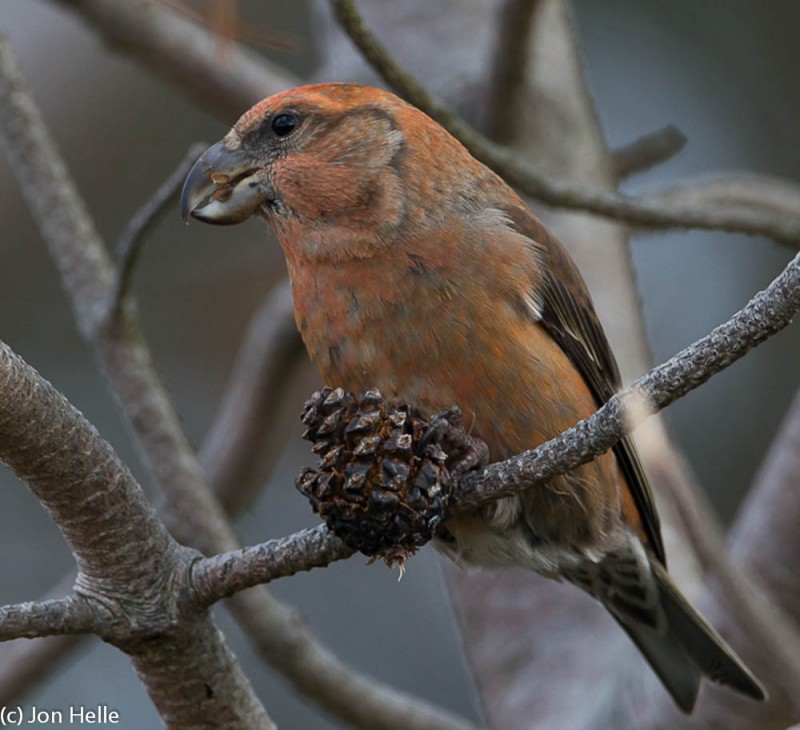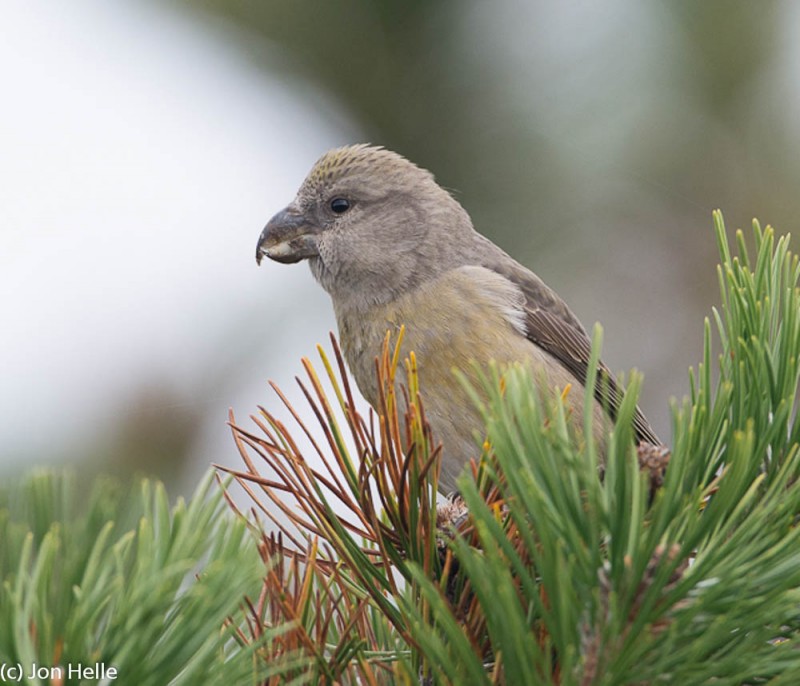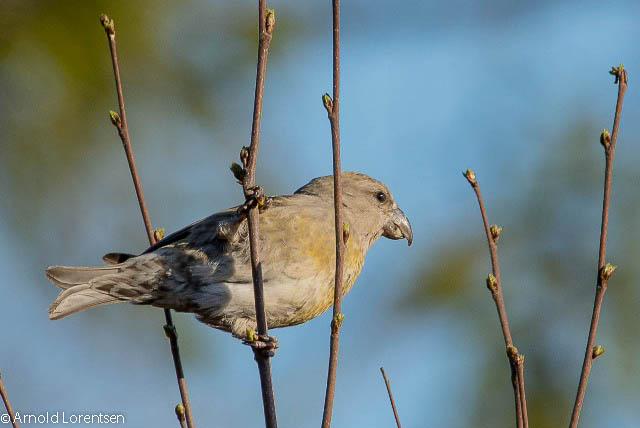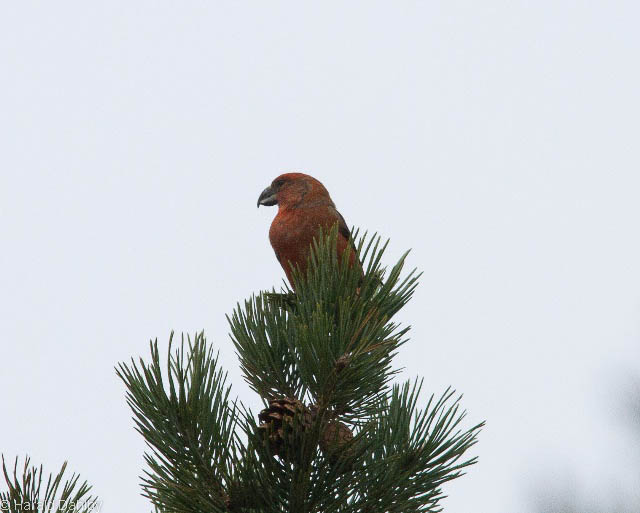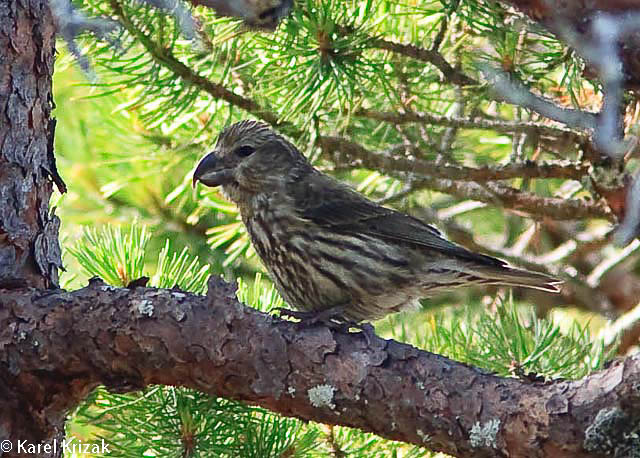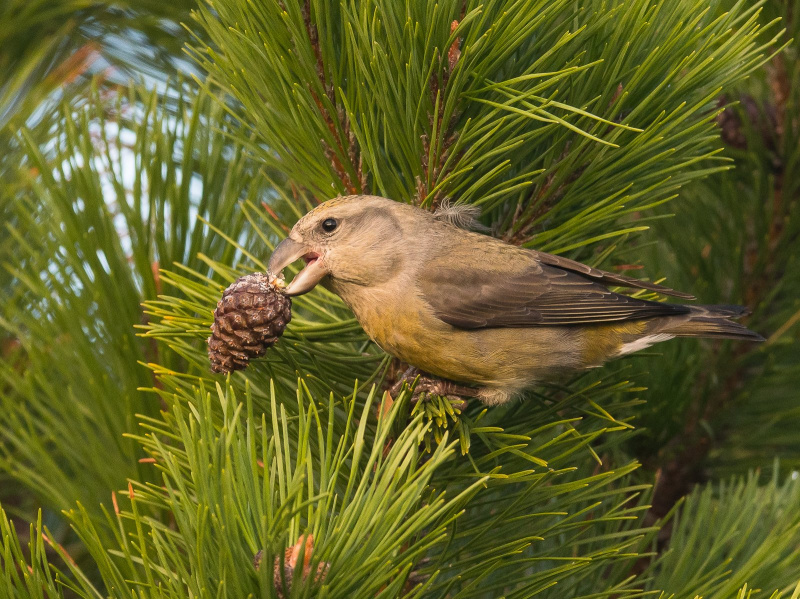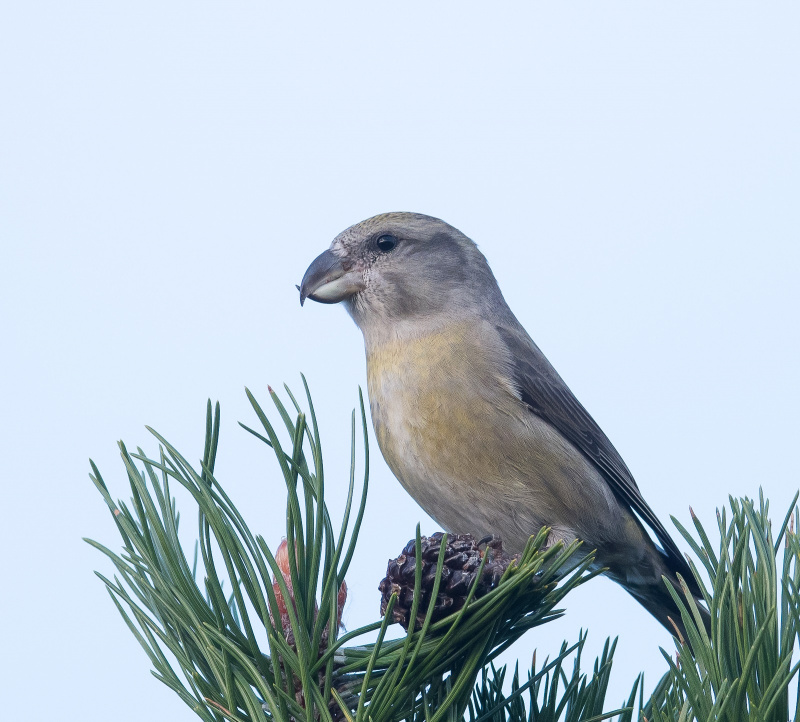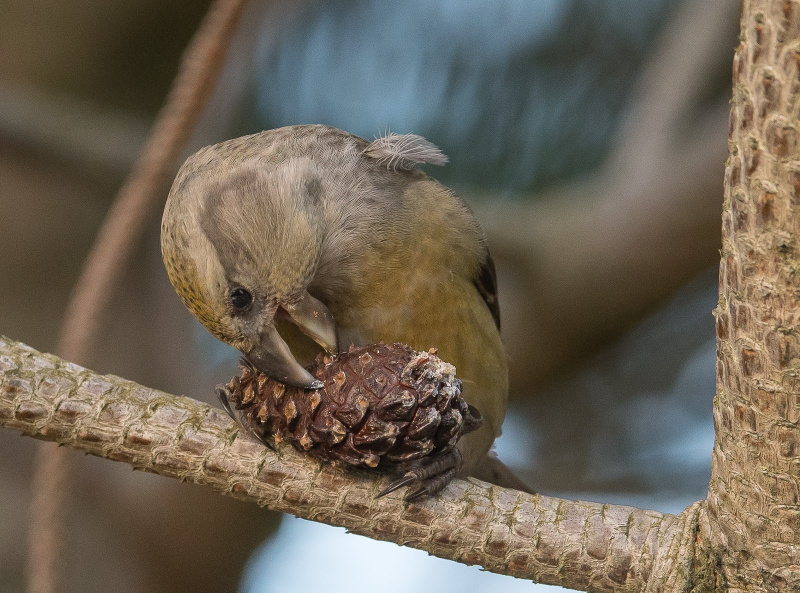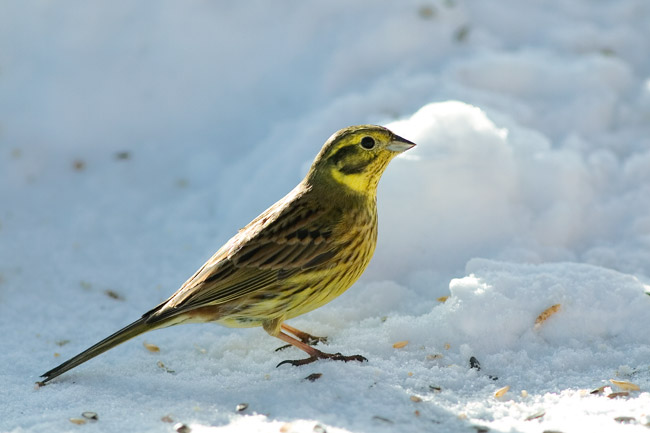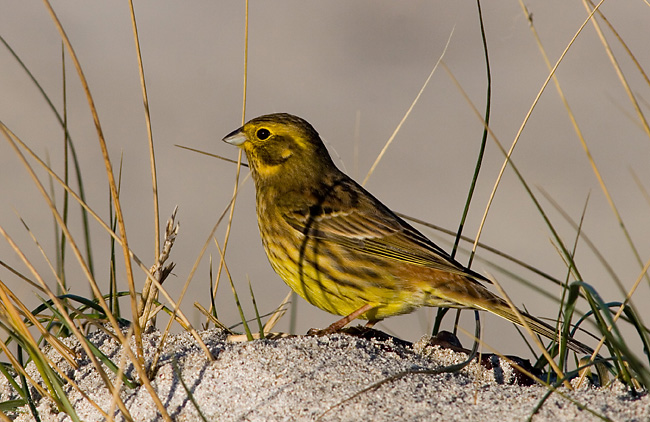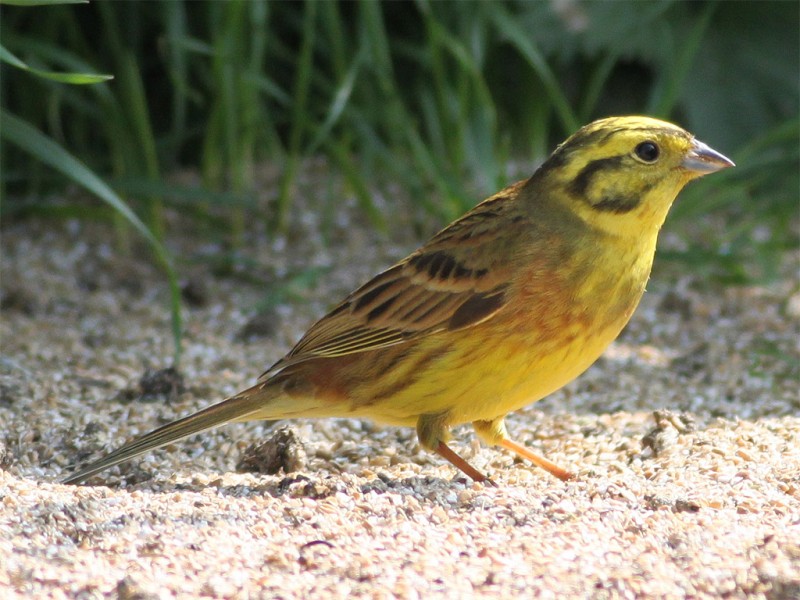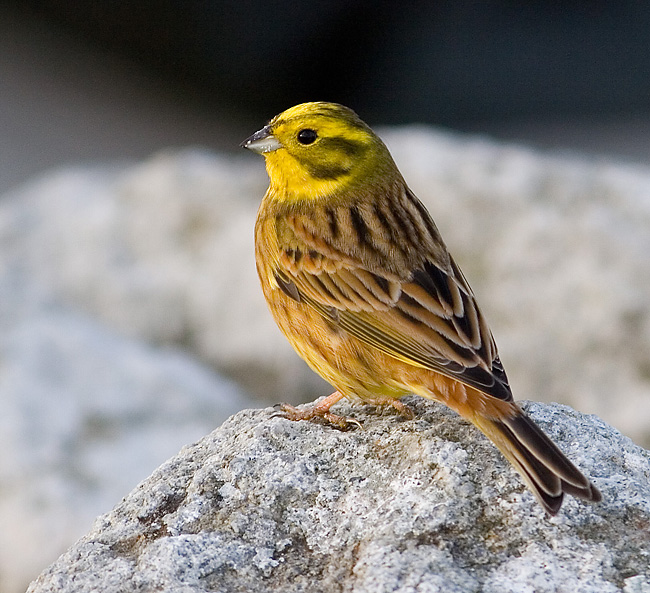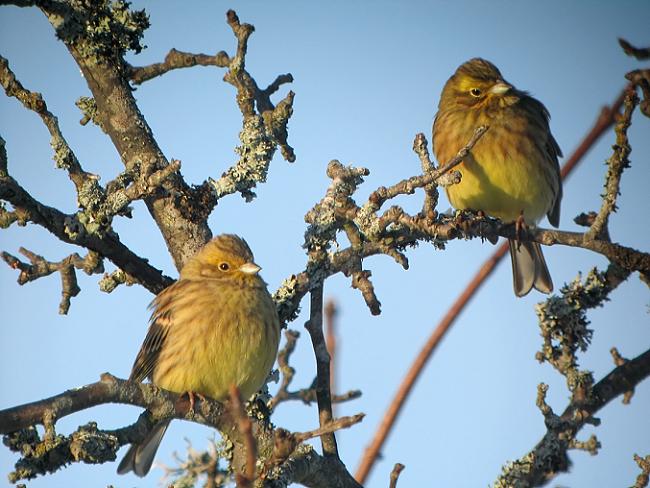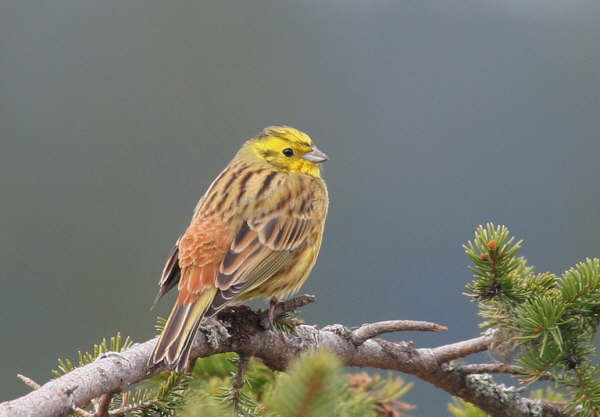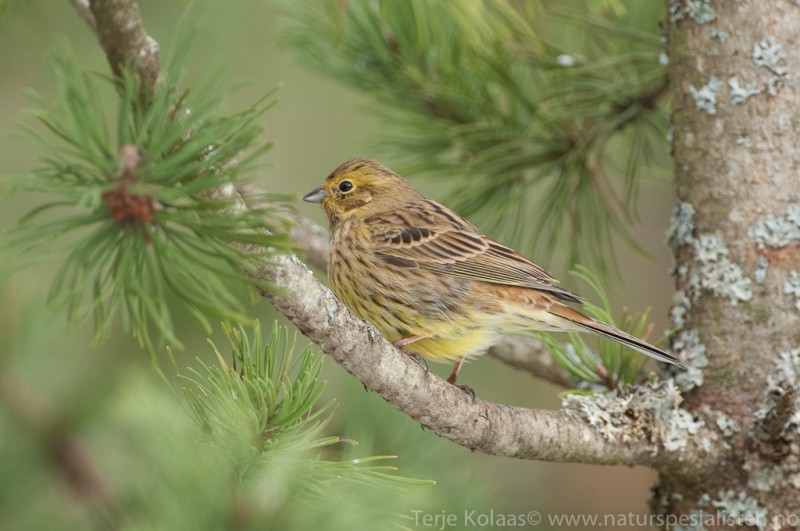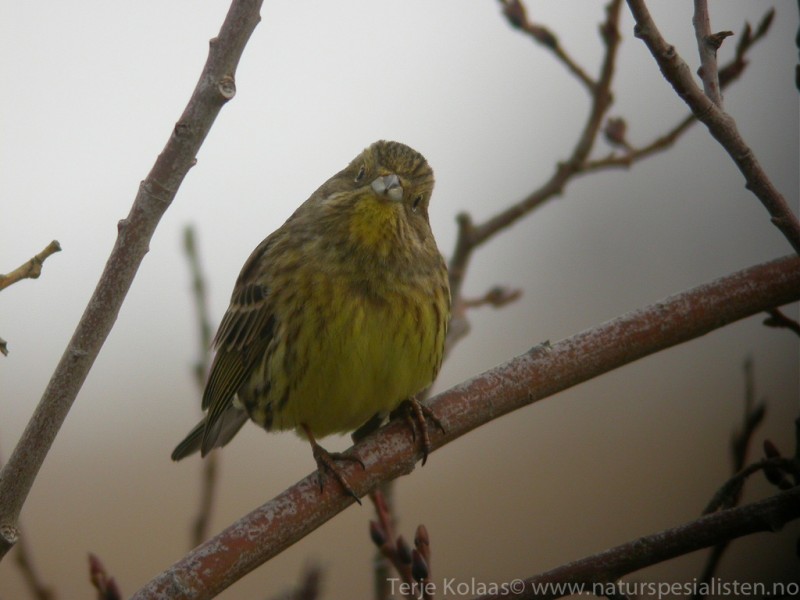Parrot Crossbill (Loxia pytyopsittacus)
Yellowhammer (Emberiza citrinella)
Very similar to Crossbill, but has thicker neck, bigger head, hardly any forehead and deeper bill. Upper mandible is more curved towards the tip than in Crossbill, and the lower mandible is s-shaped with a "bulge". The tip of the lower mandible is seldom visible from behind the upper. The chest is deeper, and many birds have a front heavy appearance. Adult males shows most distinct characters of the species, and other sexes/ages may be difficult to identify because of overlapping characters with Crossbill. Plumage similar to Crossbill, with dark wings and tail. Males with rufous red head and body, females green. Juveniles greyish green with streaking. Posture less erect than Crossbill, which, together with short tail, contributes to the front heavy impression.
Sound:Contact call similar to Crossbill's "chepp", but is on average deeper and lacks the "cut-off" ending of each call. In sum: Parrot Crossbill; hard attack, soft ending, Crossbill: softer attack, cut-off ending. The song consist of improvised, resonant twittering and series of contact calls with no apparent phrases. It is generally slower than in Crossbill, with marked pauses.
Song:
Distribution:
Xeno-canto: map
Ecology:Birdlife ecology
Links:
Observation.org Latest observations
Image search Flickr NB! May give other species
CCSounds:Recorded by Lauri Hallikainen http://www.xeno-canto.org/CC license
Large and long-tailed bunting with rufous rump. Mainly yellow and brown plumage. Head bright yellow with dark markings in breeding male. Female darker, with streaked head, yellow throat and supercilium. Back greyish and streaked . Rufous rump distinguishes it from Ortolan and Cirl Bunting. Underparts pale yellow, with relatively coarse streaking.
Sound:Distinct contact call: A short and brittle "zeet", rich in harmonics. Song a series of 6-8 (or more) slightly ascending "tze" 's, rising in volume and ending on a sustained note, which may be lower or higher than the others. Often rendered as "little-bit-of-cheese-and-no-bread". Last note is often omitted, which may lead to confusion with Cirl Bunting. Timbre with prominent harmonics as in other bunting songs.
Song:
Distribution:
Wikipedia: map (se also Xeno-canto below)
Ecology:Birdlife ecology
Links:
Observation.org Latest observations
Image search Flickr NB! May give other species
CC
 English
English Albanian
Albanian
 Armenian
Armenian
 Bulgarian
Bulgarian
 Catalan
Catalan
 Croatian
Croatian
 Czech
Czech
 Danish
Danish
 Dutch
Dutch
 Finnish
Finnish
 French
French
 Georgian
Georgian
 German
German
 Greek
Greek
 Hungarian
Hungarian
 Italian
Italian
 Latvian
Latvian
 Lithuanian
Lithuanian
 Macedonian
Macedonian
 Norwegian
Norwegian
 Polish
Polish
 Portuguese
Portuguese
 Romanian
Romanian
 Russian
Russian
 Sami : Lule sami
Sami : Lule sami
 Sami : North sami
Sami : North sami
 Sami : South sami
Sami : South sami
 Scientific names
Scientific names
 Serbian
Serbian
 Spanish
Spanish
 Swedish
Swedish
 Ukrainian
Ukrainian

